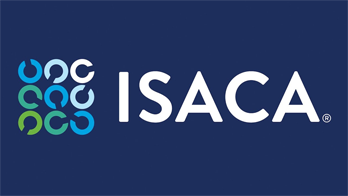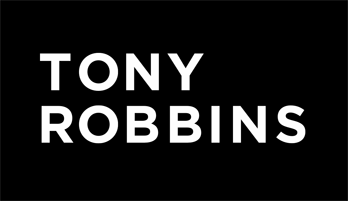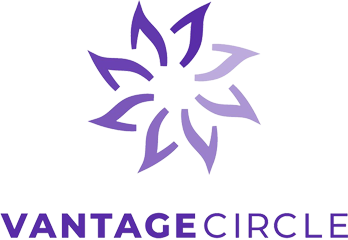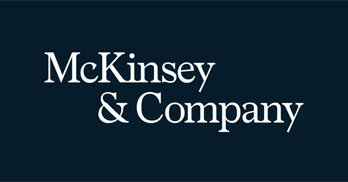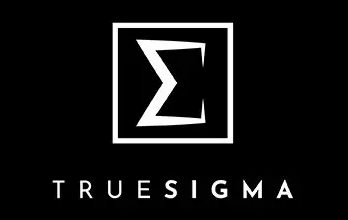|
7 Negotiation Tips from MRI Sr. Director of Vendor Management_
Negotiation is a daily practice within business organizations. We negotiate all the time — with clients and partners, vendors and suppliers, supervisors and colleagues, employees and recruits. As MRI’s Senior Director of Vendor Management, Beth Turner understands that the best negotiators are ones who are able to create win-win situations.
Being a good negotiator is central to Beth’s role at MRI. “Every day, I’m in discussions with third-party vendors with the goal of achieving positive outcomes that yield mutually beneficial results,” she says. “It’s not about beating the opposition out of the other party. In the end it’s about everyone feeling that the deal is a good one.”
Beth observes that the number of women working in roles requiring keen negotiating skills is much greater than in the past, when many believed that these roles required the toughness that men could bring to the table. “In my experience,” she says, “women tend to excel at reading people and building relationships, two incredibly important parts of negotiation. While the ability to aggressively get what you want might seem like a victory in the moment, the reality is that the lack of goodwill generated by this can cause problems down the road.”
Here are some of Beth’s most valuable tips to help all negotiators develop this make-or-break professional skill.
Do Your Research
“Always do your research, show up prepared, and demonstrate early on that you understand exactly who you’re negotiating with. In my role at MRI, I have to work across numerous industries from software companies, to telecommunications, to hotel contracts. You must be well-versed enough to understand the industry in which you’re negotiating — if your negotiation partner needs to educate you, you’ve lost credibility and leverage.”
Get Straight to the Point
“Especially when negotiating with men, directness is the best approach. I recommend keeping your focus on closing the deal, and your desired outcome, rather than spending your time on the minutiae in a very detailed discussion. Start out by sharing your goal to set expectations, and ask your negotiation partner a few succinct, pointed questions so you can understand what they want out of the negotiation.”
Show Consideration
“Often, early on in my negotiations for MRI, I’ll ask the rep or vendor what closing this deal would mean for them. For example, what would a win for them look like? Is there a time frame in which they’d like to get the contract executed?
“Almost every time, the vendor is caught off guard — they so rarely feel considered during negotiation. In my experience, this shows that you value partnership and a mutually beneficial outcome, right out of the gate.”
Stop Anytime
“Confidence is key to effective negotiation — and that includes the confidence to walk away. If for any reason, a negotiation is not going well, I will stop or pause the process altogether, no matter how badly I want the deal to close. You can always reopen the discussion later, but there is little to be gained by prolonging an interaction that is no longer serving you.”
Always Self-Review
“After every negotiation, good or bad, I spend fifteen minutes doing a quick self check-in. What went well? What do I wish happened? What could I have done differently? This moment of self-reflection allows me to assess my own role in the negotiation, and ensure that my skills are always improving.”
Keep it Honest
“If you cultivate honesty and strong relationship and communication skills, other people will trust and want to work alongside you. In my role, vendors know what to expect from dealing with me, and colleagues and Managing Partners trust that I am acting in good faith to get the best deal for them.
“Having strong negotiation skills will also help when you have to deliver bad news about the outcome of a negotiation to a partner or co-worker. Because you’ve established an honest, trusting relationship, they can be confident you did everything I could to get the best results possible — even if the outcome wasn’t exactly what they hoped for.”
How Beth Opens a Negotiation
There is no one right way to negotiate, and you’ll likely settle on an approach that feels comfortable and authentic for you.
However, if you’re looking for some guidance on how to get started, Beth often uses these three points to open her negotiations. Next time you aren’t sure how to start your negotiation, give them a try:
- Ask your partner why closing this deal is important to them and their company.
- Assure your partner that your goal is not to squeeze every last penny from them, but to find an outcome that is mutually favorable for you both.
- Set a boundary about your expectations. Communicate that you are not interested in wasting time trading multiple offers back and forth, and that you expect them to come forward with their best possible proposal once initial discussion is out of the way.
An Essential Life and Business Skill
Many professionals find negotiation difficult, stressful, or challenging, but successful negotiation boils down to a few simple principles: relationship building, strong communication skills, honesty, and transparency.
“We must have the confidence to put those skills to use in a persuasive style and build relationships on a foundation of honesty and professionalism,” Beth concludes.
Focusing on these areas while developing yourself as a negotiator will benefit you outside the office, too. Negotiation is a part of life, whether you’re debating with your significant other on where to go for dinner or attempting to get the best deal on a new vehicle. No matter your age, gender, or professional title, negotiating is something by which you should not be intimidated.
|
July 2021

2400 E. Commercial Blvd., Suite 718
Fort Lauderdale, FL 33308
MRINetwork.com

"Many clients are focused on bringing talent into their organization who can be transforming and multipliers. Past education and past roles remain important, and candidates who demonstrate and prove their drive toward their ‘intentional north star’ are increasingly in demand."
Bert Miller
President & CEO
MRINetwork

- The Henley Passport Index, which has been regularly monitoring the world’s most travel-friendly passports since 2006, has released its latest rankings. As the index doesn’t take temporary restrictions into account, Japan is once again top of the leaderboard, with its passport offering visa-free or visa-on-arrival access to 193 destinations around the world. But international mobility was still only 12% of its pre-pandemic levels. The passport top 10 remains virtually unchanged with Singapore remaining in second place and South Korea tying with Germany in third place. As usual, most of the remaining top 10 spots on the index are held by EU countries. Finland, Italy, Luxembourg, Spain are in fourth place; Austria, Denmark are at number five; while France, Ireland, Netherlands, Portugal and Sweden are together at number six. Via
CNN.
- G20 finance ministers could rally the world’s top economies behind a global plan to tax multinationals more fairly in 131 countries representing 90 percent of world output. The Group of 20 – the world’s 19 biggest economies plus the European Union – have already backed the framework for global tax reform, but negotiations continue to convince low-tax EU countries such as Hungary, Ireland and Estonia, to tax global companies at a rate of at least 15 percent. The hold-out European countries have relied on low tax rates to attract multinationals and build their economies. Ireland, the EU home to tech giants Facebook, Google and Apple, has a corporate tax rate of just 12.5 percent, while Hungary has one of 9.0 percent and Estonia almost only taxes dividend payments. However, the support of these three countries is crucial for the EU, as the adoption of a minimum tax rate would require unanimous backing from member states. Via
The Economic Times.
- France’s pension system is back in the spotlight as President Emmanuel Macron prepares his final grand act before new elections next April. Macron had plans to change France’s pension system, where workers can retire at 62 – one of the lowest retirement ages in the world – but he was forced to put his plans on hold to deal with the pandemic crisis. Macron is now considering reviving his plans and make good on his 2017 promise to reform the pension system. It is yet unclear how and when he will choose to change the pension system. However, he met with leaders of trade unions to discuss the “demographic challenge,” and is expected to present his ideas soon. The main trade unions in France are reportedly against changing the pension system. Via
CNBC.
- Mexico chose state-owned Pemex to run a major shared oil find over the private consortium led by a U.S. oil company that first discovered it, in the latest win for President Andres Manuel Lopez Obrador’s nationalistic energy policies. The disputed deposit, believed to hold some 700 million barrels of oil, is thought to straddle two neighboring blocks in the southern Gulf of Mexico, one belonging to Pemex and the other to a private consortium of oil companies led by Houston-based Talos Energy. It was the first major oil discovery by foreign companies after reforms spearheaded by Mexico’s previous administration opened up the country’s energy sector to foreign and private producers. Talos, which announced the discovery of the well in 2017, and argues that it should run the project, said that it would explore all legal and strategic options to maximize value for its shareholders. Via
Reuters.
|


